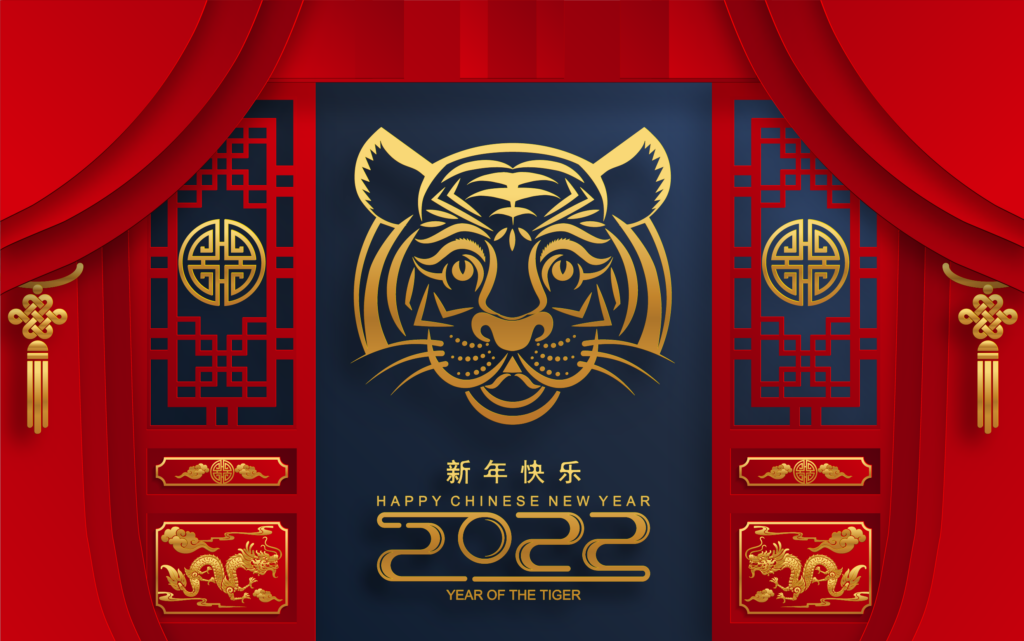If January is feeling a little flat after the fun of the festive season, why not look to one of the most colourful and enjoyable celebrations in January – Chinese New Year. Steeped in thousands of years of tradition, Chinese New Year is celebrated by Chinese communities around the world. If you aren’t sure where to start or even how the celebrations began, we bring you an article packed full of information on this wonderful time of celebration.

What is Chinese New Year?
Chinese New Year, often also known as Lunar New Year is an annual 15-day festival. It begins with the new moon that occurs sometime between January 21 and February 20, according to Western calendars. The celebrations and festivities last until the following full moon. In China, people are given seven consecutive days off work during the Chinese New Year. This week is also known as Spring Festival, a term that is sometimes used interchangeably with the name ‘Chinese New Year’.
When is Chinese New Year Celebrated This Year?
This year, Chinese New Year will be celebrated on Tuesday, February 1, 2022, heralding The Year of The Tiger.
What Are The Origins of Chinese New Year?
There are many legends that surround the conception of the origins of Chinese New Year. One such legend is that many thousands of years ago, a monster by the name of Nian (which means ‘year’) would attack villagers at the start of each new year. Nian was said to be afraid of bright lights, loud noises, and the colour red. All these things were then used to chase Nian away. Celebrations of the Chinese New Year take place to see off the old year and bring forth luck and prosperity into the new one. These celebrations incorporate ways to see off Nian, such as setting off firecrackers for loud noises, fireworks for bright lights and the wearing of red clothes and hanging of red decorations.
What Traditions Are Associated With Chinese New Year?
Red Envelopes: Young people are given red envelopes with money inside. The red colour represents luck, happiness, and good energy. In China, a red envelope is traditionally called ‘ya sui qian’, which means ‘suppressing Sui’ (or ghost) money – but who was Sui?
Eight Coins on Red Strings: According to another myth, Sui was a monster who wanted to bring harm to children on New Year’s Eve night. To stop Sui from bringing harm to children, their parents would light candles and pray. If the Gods found the prayers sincere, they would grant eight guards that were disguised as coins to protect the children. Over time, parents began to thread eight coins on red strings to place beneath children’s pillows to ward off Sui. These coins gradually turned into paper money and the thread into an envelope.
Cleaning of Houses: Another tradition of Chinese New Year is the thorough cleaning of houses to rid the residents of any bad luck that might be lingering from the previous year.
Lucky Foods: Chinese New Year is a time to share feasts and visit family members. Many foods are considered lucky foods to eat and share during the feasting. These include:
- Fish for an increase in prosperity
- Dumplings and Spring Rolls for wealth
- Tangyuan (Sweet Rice Balls) for family togetherness
- Good Fortune Fruit for fullness and wealth
- Niangao (Glutinous Rice Cake) for a higher income or promotion
- Longevity Noodles for happiness and longevity
Lantern Festival and Dragon Dance
The very last event to be held during the Chinese New Year is known as the Lantern Festival. This is celebrated by hanging glowing lanterns in temples or by carrying them during a colourful and noisy night-time parade. The dragon has long been a Chinese symbol of good fortune; therefore, a dragon dance is the highlight of the Lantern Festival celebrations for many. This involves a procession of a large and long, colourful dragon that carried through the streets by numerous dancers and brought to life by its movements, shaking its head and body as it goes.
Fascinating Facts:
- This is the night the most fireworks in the world are set off!
- Chinese New Year sees the largest migration of people in the world as people join with families and friends to celebrate.
- You aren’t allowed a bath or shower on New Year’s Day – the luck will be washed away if so! Hair can’t be cut before February 2nd either.
We wish you all ‘xin nian kuai le’, and a year full of luck and prosperity. If you are in Hong Kong and other Cantonese-speaking regions, then ‘gong hei fat choy’. If you speak Mandarin Chinese, then ‘gong xi fa cai’.






